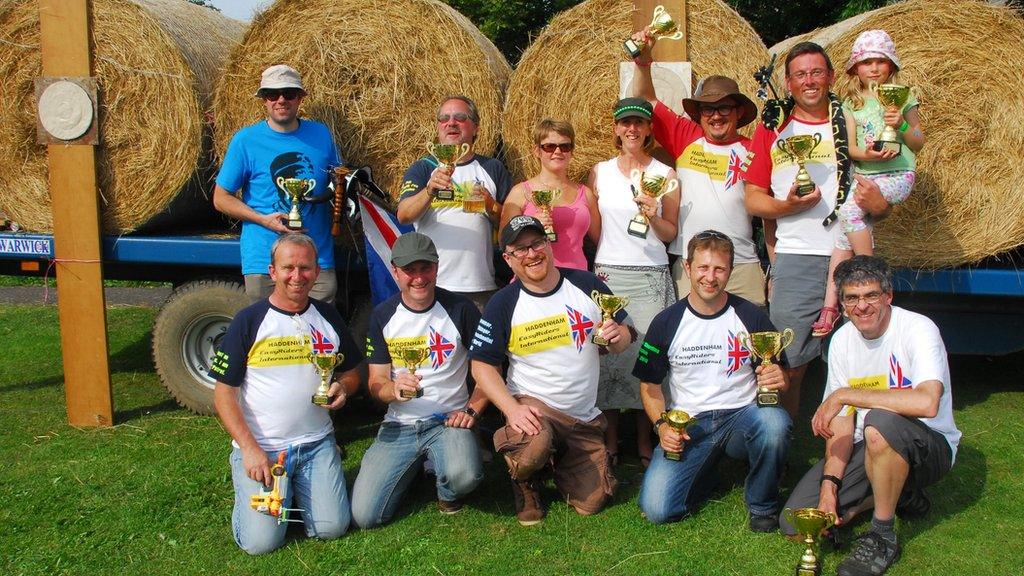Scrabble champs and shin-kick kings: England's unsung winners
- Published
English sport has enjoyed a summer of success, from the cricketers' Ashes victory to our athletes' gold-winning efforts at the World Championships. But England is also home to many other men, women and children who are among the global elite in their respective disciplines.
From the cerebral challenge of the Scrabble board to the centuries-old ritual of shin-kicking, here are just some of England's World Champions.

Scrabble
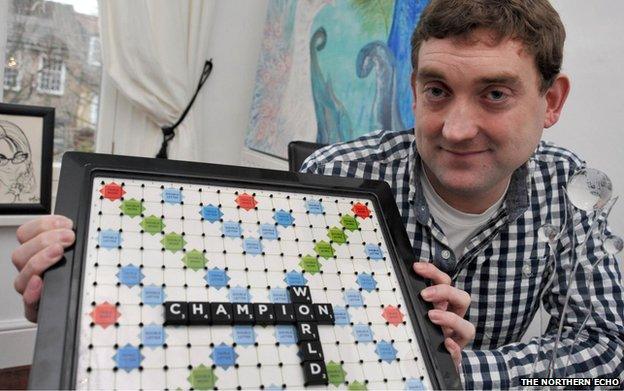
Craig Beevers will be hoping to retain his title in 2016
Knowing the word for a form of Muslim divorce made Craig Beevers a world champion.
The 34-year-old was crowned the world's best Scrabble player in London in 2014, beating 100 competitors from 40 different countries.
And talaq secured him a crucial 42 points in his 440 to 412-point final win.
"I had to get rid of that Q and I knew there were no more Is or Us to come," he said.

The 34-year-old, who hails from Stockton-on-Tees, external but lives in Guisborough, North Yorkshire, started playing seriously as a 22-year-old student in Sheffield.
Former Countdown winner Mr Beevers will soon be releasing a book to instruct other hopeful Scrabble champions.
"It's the ultimate game, it has a bit of everything," he said.
"It's not just all strategy like chess, or luck of the draw like poker.
"You get elements of everything in Scrabble."
His highest ever score was for bumbazes, meaning to confound or perplex.
Mr Beevers said it secured him either 204 or 213 points (although he can remember up to 150,000 words, he can't quite recall the correct score).
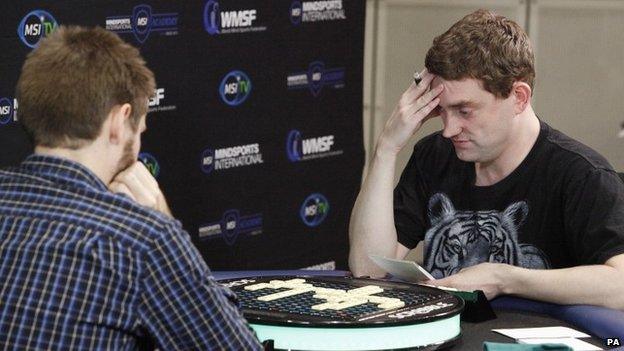
Craig Beevers (right) beat American Chris Lipe in the 2014 final in London

Shin-kicking
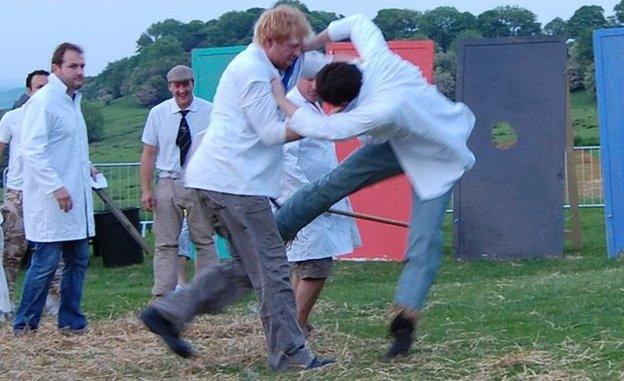
Shin-kicking has been contested in the Cotswolds since 1612
"Not many people can say they are a world champion at a sport played just five minutes from their home."
So says Adam Miller, a 25-year-old Cotswolds farmer who beat his best friend in May to become world shin-kicking champion, external.
The sport is one of the longest running at the Robert Dover's Cotswold Olimpicks, which were first held in 1612.
The aim is to fell your opponent by - as the name suggests - kicking them in the shins.
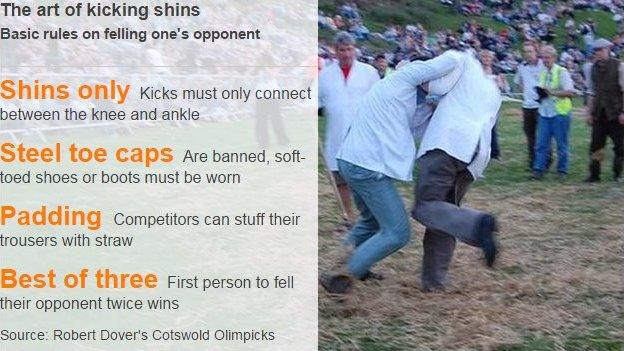
"I'm pleased to have won," Mr Miller said.
"I've done something with my life which I can tell my kids and grandkids about, to be a world champion of something is an achievement to be proud of.
"If you haven't arranged your padding properly and someone kicks you it does hurt, I did get a few bruises and cuts, but it's not bad, it was what I expected."
The farmer said the upper-body strength gained from his day job proved very helpful in his championship-winning bout.
"There is a lot of strategy and skill to it as well as strength," says Olimpicks chairman Graham Greenall.
"We do get people from all over the world coming to compete, it's famous around the globe."

Pooh sticks

The Blantz family from Oxfordshire are the reigning team world champions at Pooh sticks
Residents of Burford may not realise, but they share their Oxfordshire town with a family of world champions.
Steven and Helen Blantz and their children Sam, 11, Eve, 10, and Jessica five, are the reigning team champions at Pooh sticks, the game created by author AA Milne in Winnie the Pooh.
"We are very proud of it," said Steven, an IT buyer in London.
"We have shown our sporting prowess but we are being modest about it as well.
"It's not something you expect to happen.
"It's great that there are events like this which enable ordinary people to become world champion; it doesn't really matter whether you win or lose, just taking part is enough fun."
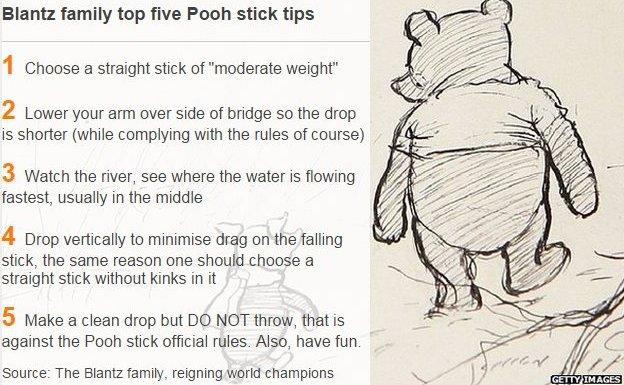
The world championships are contested annually in Witney, Oxfordshire.
Competitors must drop sticks in to the River Windrush, with the first to pass beneath the bridge and cross the finishing line declared the winner.
"Some people claim it's skill, but really I think there is a lot of luck," said Lesley Adams of event organisers the Rotary Club of Oxford Spires.
About 500 people took part this year, using officially-sanctioned sticks, which are collected for reuse after being dropped in the river.
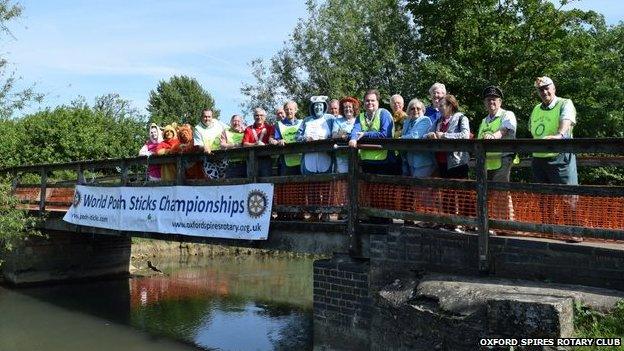
The championships were first held in the 1984 and have been organised by the Rotary Club of Oxford Spires since 2009

Conkers
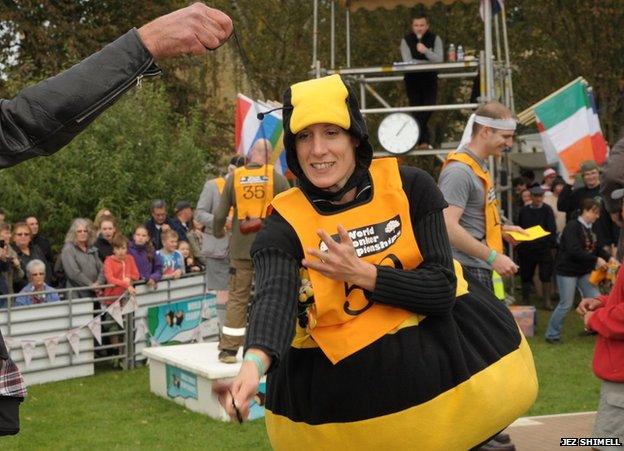
Amateur beekeeper Stephanie Withall dressed the part as she was crowned the Ladies World Conkers champion
Stephanie Withall enjoys being among the global elite.
"The kudos is super," said Ms Withall, who has competed at conkers for the past three years.
Ms Withall, 38, a business psychologist and amateur beekeeper from Towcester, was crowned the ladies champion at the 2014 World Conkers Championship.
She would not be drawn on the secret of her being the best lady, saying only: "I drank less beer than in previous years.
"I have been anxious about defending it from the moment I won it," she said, adding: "It would be nice to keep it but I know the odds are against me, I will give it a good go though."
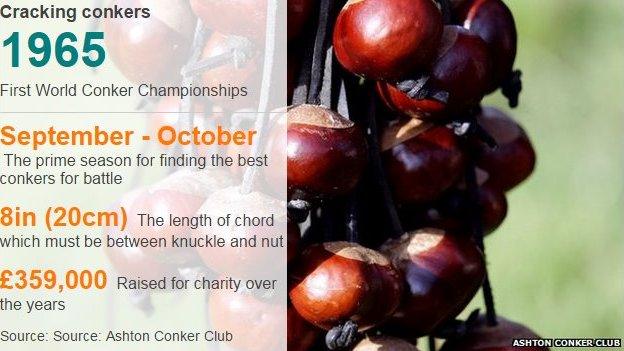
The annual contest is held on the second Sunday of October in Southwick, Northamptonshire.
And it is a truly global - and occasionally controversial - conflict, said organising committee member St.John Burkett, with representatives from 14 nations taking part.
"People have been known to cheat," he said.
"They might drill out the middle and fill it with superglue, cook them in the oven to make them super-hard or boil them in vinegar, which softens the shell and makes them much harder to crack."
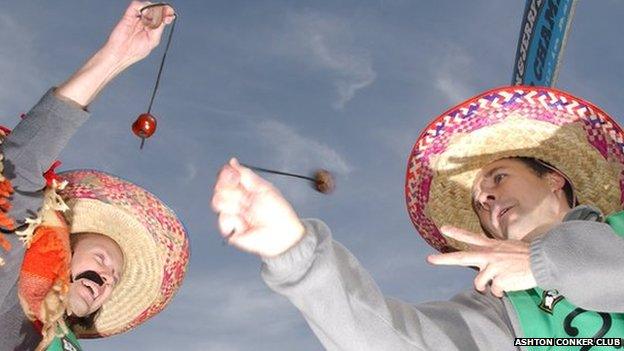
People from up to 14 different countries have participated in previous World Conker Championships - fancy dress is encouraged
To eradicate rule-breaking, all conkers are provided by the organisers from a secret group of trees.
More than 1,000 are collected, inspected and attached to 30cm long leather leashes.
"The rules are very strict, we take it very seriously," said Mr Burkett.
"For example, we have strong rules about drinking beer; usually the problem is people don't drink enough."
There are several different techniques, said Mr Burkett, ranging from hard smashes, to small nibbles which weaken the opponent's conker without doing too much damage to your own.
"You have to use strength, strategy and guile," he said.
"And practice is key, a lot of people turn up on the day without practising.
"They don't normally do that well, and if they do a lot of the seasoned players start to grumble."

- Published26 August 2015
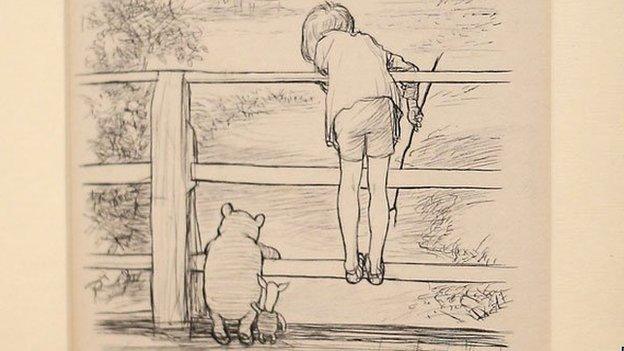
- Published23 November 2014
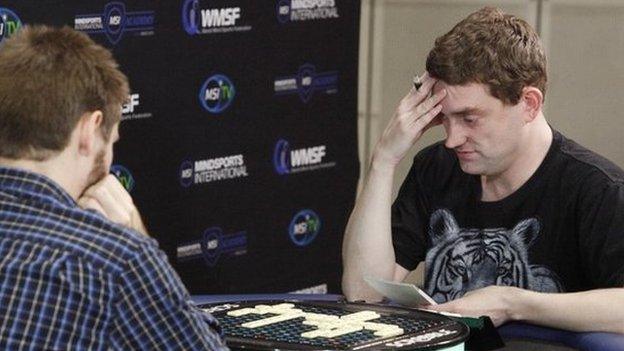
- Published13 July 2014
